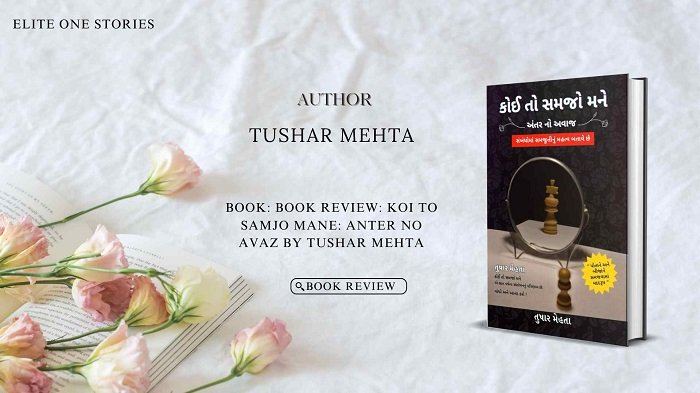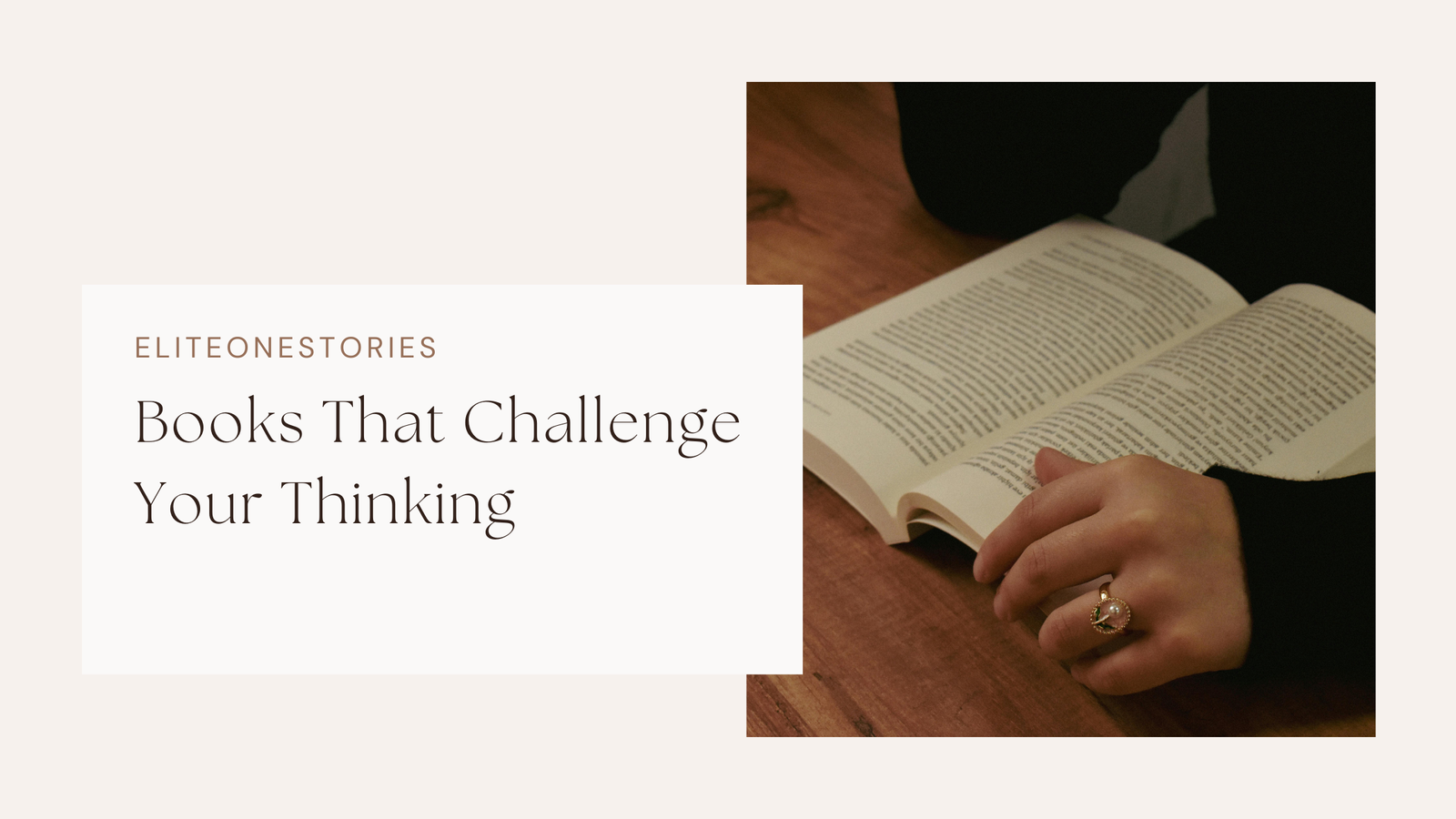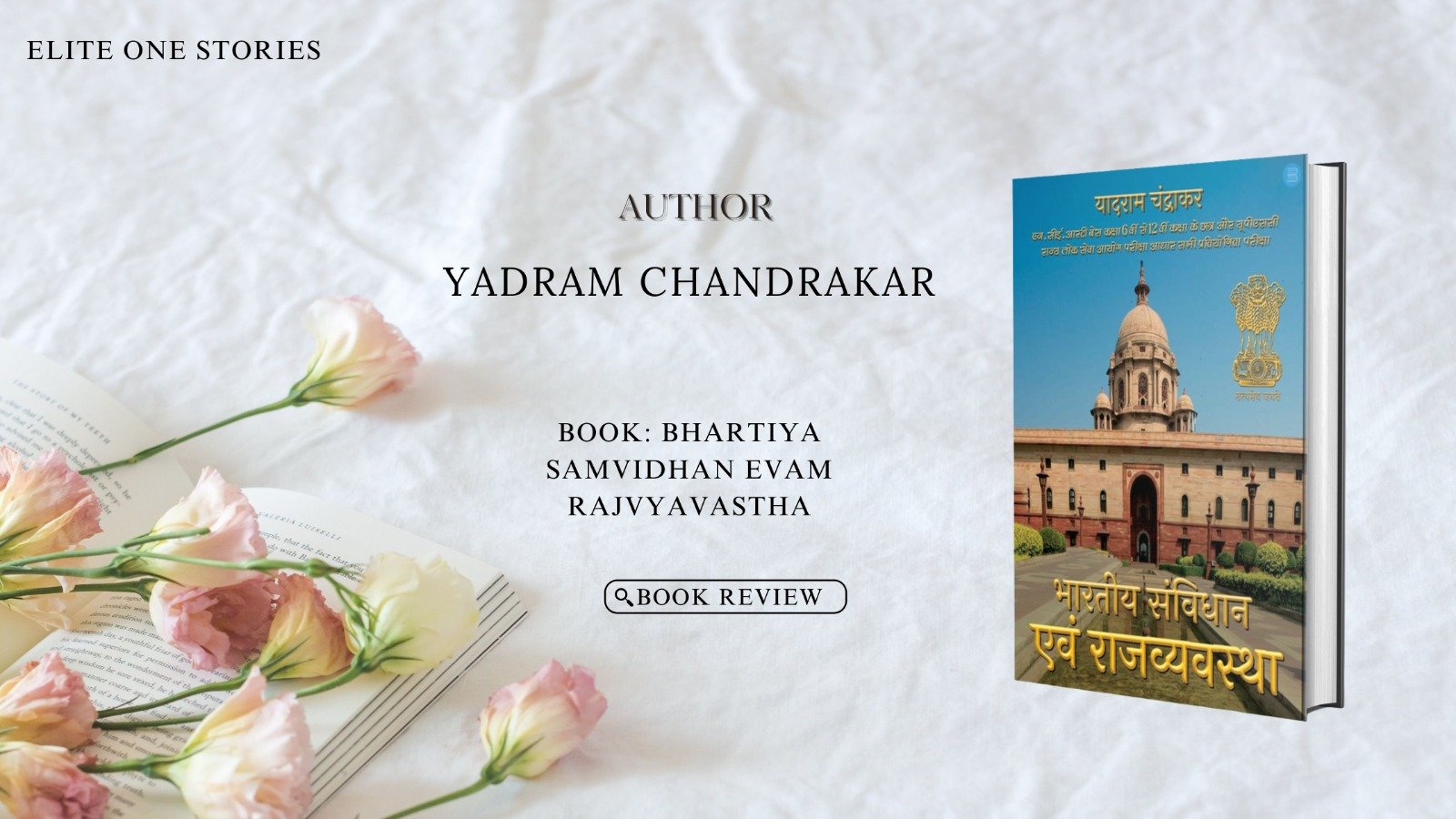In today’s fast-paced world, where conversations are rushed and genuine listening has become rare, Tushar Mehta’s Gujarati book Koi To Samjo Mane: Anter No Avaz (Someone Please Understand Me: The Voice Within) arrives as a much-needed reminder of the fundamental human longing—to be truly understood. It is a book that doesn’t just narrate stories; it speaks directly to the heart, inviting readers to reflect on the depth and fragility of human relationships.
The book is a collection of stories, each carefully crafted to showcase the silent struggles, unspoken emotions, and everyday realities of individuals navigating life’s different roles. What ties them all together is the universal truth that every person, regardless of age, status, or background, seeks empathy. Through his characters, Mehta reveals that misunderstandings often don’t stem from monumental mistakes but from the smallest of oversights—a careless remark, an unacknowledged effort, or an absence of gratitude. These subtle cracks, if left unattended, can weaken the foundation of even the strongest relationships.
What makes Koi To Samjo Mane: Anter No Avaz stand out is its delicate balance between realism and hope. The stories don’t shy away from portraying conflicts, disappointments, or the pain of neglect. Yet, rather than leaving readers with despair, Mehta highlights the possibilities of resolution, growth, and healing. For instance, the narrative around a housewife’s silent struggle to reclaim her identity doesn’t end with resignation but with empowerment, showing how self-realization can transform not only the individual but also the relationships around them.
The author’s exploration of family and social dynamics is remarkably wide-ranging. He moves seamlessly from the tenderness of grandparents longing for connection with younger generations, to the challenges of parenting in a modern, distracted world, to the unspoken tension between colleagues in professional spaces. Each scenario is grounded in relatable detail, allowing readers to see themselves or their loved ones mirrored in the pages. By doing so, Mehta underscores that while circumstances may vary, the need for love, acknowledgment, and understanding remains constant across all walks of life.
Tushar Mehta’s professional journey as a life coach and relationship coach is evident throughout the book. His extensive interactions with people from diverse cultures and backgrounds provide him with an authentic understanding of human emotions. This depth of observation translates beautifully into the stories, which feel both personal and universal. Unlike purely fictional tales, these narratives carry the weight of real-life struggles and insights, making them not just relatable but also instructive. Readers are not only moved by the characters’ experiences but also equipped with lessons to apply in their own relationships.
Stylistically, Mehta keeps his language simple yet evocative. His use of Gujarati is accessible to a wide audience, but the power of his writing lies in the emotions it stirs. His dialogues are sharp, realistic, and layered with unspoken meanings. For example, the simple phrase “Anything will do” in response to a dinner query reveals much more than indifference—it exposes gaps in emotional intimacy. Such small yet profound details make the stories resonate deeply with readers. They compel us to pause, reflect, and reconsider the way we communicate in our daily lives.
One of the most touching qualities of the book is its ability to address all stages of life with equal sensitivity. Young readers will find the struggles of students and professionals familiar, while older readers will connect with the stories of retired individuals and generational conflicts. In this way, the book bridges generations, offering insights for both the young and the old. It becomes not only a mirror to individual readers but also a bridge that fosters empathy between different age groups.
The spiritual undertone in Koi To Samjo Mane: Anter No Avaz adds yet another dimension. The “voice within” is not only about others recognizing our emotions but also about us learning to listen to ourselves. Many times, misunderstandings in relationships stem from our inability to articulate our own needs clearly. Mehta gently nudges readers toward introspection, encouraging them to understand their inner voice before expecting others to. This inward journey adds depth to the book, making it both emotionally moving and spiritually enriching.
The book also draws strength from Mehta’s earlier work in sharing short stories and reflections under the banner “Happiness Within” on social media platforms. Those familiar with his work will recognize the same warmth and sincerity here, but with greater maturity and cohesiveness. This collection feels like the culmination of years of observation and reflection, a work shaped by patience, compassion, and a genuine desire to help people reconnect with themselves and with each other.
Koi To Samjo Mane: Anter No Avaz, published by Astitva Prakashan, thus goes beyond being a collection of stories. It becomes a guide to living more consciously, to practicing gratitude, to listening with the heart rather than the ears, and to valuing relationships as the true wealth of life. In an age where technological connectivity often overshadows emotional connection, this book offers a gentle yet firm reminder of what really matters.
Final Thoughts: Tushar Mehta has crafted a work that is at once simple and profound. By capturing the intricacies of human relationships in everyday settings, he touches on truths that are timeless and universal. For anyone who has ever felt misunderstood, overlooked, or disconnected, this book offers not only recognition but also hope. It teaches that small acts of care can bring about profound change, and that true love cannot exist without true understanding.
Verdict: A heartfelt, authentic, and transformative read. Koi To Samjo Mane: Anter No Avaz is not just a book to read, but a book to live with—reflecting on its lessons long after the last page is turned. Highly recommended for readers of all ages who cherish relationships and believe in the healing power of empathy.



